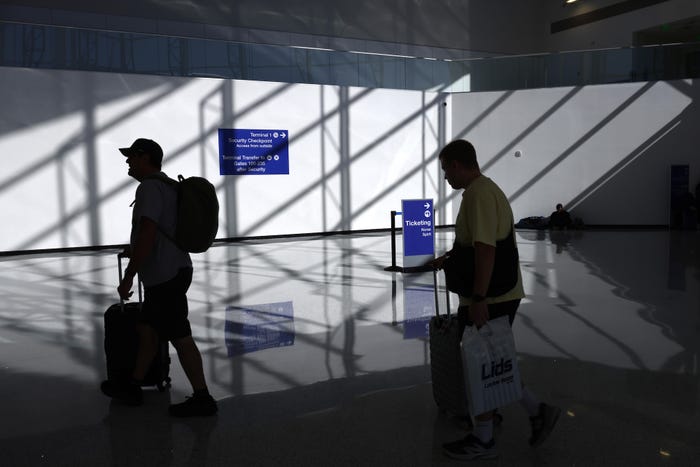UPDATE: Starting Friday, October 27, 2023, the Federal Aviation Administration (FAA) will cut 10% of flights at 40 US airports due to severe air traffic control delays stemming from the ongoing government shutdown. This drastic measure could impact up to 1,800 flights, affecting 268,000 seats, as holiday travel begins to ramp up.
The situation is dire: many airports, including Los Angeles International Airport, are already facing significant delays and staffing shortages, leading to temporary shutdowns. The FAA’s decision is a direct response to these challenges and aims to manage the overwhelmed air traffic system. Key airports confirmed to experience service reductions include Atlanta, Charlotte, Boston, Seattle, and Philadelphia.
Officials report that the FAA has not released a full list of affected airports, but Cirium has identified numerous major hubs likely to be included. This includes:
– Chicago O’Hare International Airport
– Hartsfield—Jackson Atlanta International Airport
– Dallas/Fort Worth International Airport
– Denver International Airport
– Los Angeles International Airport
With the holiday travel season approaching, this reduction comes at an incredibly inconvenient time. Travelers should brace for longer lines, potential delays, and possible cancellations. Some airlines have begun notifying their customers about the upcoming changes, although details remain sparse.
Frontier Airlines has stated that most flights will operate as planned but will keep customers updated on any changes. Similarly, United Airlines confirmed that its long-haul international flights would not be affected, but regional and domestic mainline flights between hubs may face cuts. United’s CEO, Scott Kirby, indicated that Chicago O’Hare might be the most impacted airport, with an estimated 121 flights expected to be canceled.
Travelers are urged to prepare for disruptions. Industry experts recommend arriving at airports earlier than usual, especially if checking bags. “Plan for long lines and make sure to pack valuables in your carry-on,” advises Audrey Kohout, Co-CEO of luggage shipping companies LuggageForward and LugLess.
In light of potential cancellations, major airlines like American, Delta, Frontier, and United are allowing customers to change or refund their flights at no extra cost. Passengers on Southwest whose flights are canceled are also eligible for refunds. However, as of now, Alaska Airlines has not implemented a flexible travel policy.
With uncertainty looming, some airline executives are stressing the importance of having contingency plans. “If your flight is canceled, your chances of being stranded are high, so I would simply have a backup ticket on another airline,” warns Barry Biffle, CEO of Frontier Airlines.
As this situation develops, travelers should stay informed and monitor updates from airlines and the FAA. The impact of these flight cuts is expected to reverberate through airports nationwide, making holiday travel increasingly challenging for millions.
